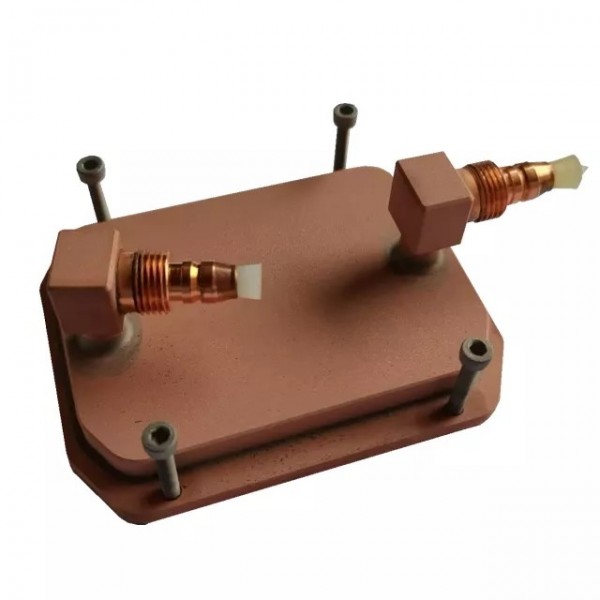65. Heat Sink Surface Treatment Process
페이지 정보
작성자 최고관리자 작성일 23-07-05 12:36본문
As a precision part, heat sinks are widely used in various fields, and their structure and quality have a non-negligible impact on the cooling effect. This requires manufacturers to pursue excellence in material selection and surface treatment, and strive for perfection. Scientific and effective surface treatment technology can not only help manufacturers save finished products, but also produce heat sinks with higher cost performance and more exquisite appearance, which has an impact that cannot be underestimated on their own brand building.
In addition to the careful selection of materials, more attention should be paid to the surface treatment process. After multiple processes of sandblasting, wire drawing, baking, electroplating, anodizing and laser processing, the final product is beautiful and exquisite, durable and efficient in heat dissipation. Let's take a closer look at these processes.
6 kinds of surface treatment process of heat sink:
1. Sandblasting
Sand blasting refers to the process of using compressed air as the power to clean and roughen the surface of the heat sinks by the impact of high-speed sand flow. Through impact and cutting on the surface, this process can not only clean up all the dirt on the surface of the heat sinks, which can show a uniform metallic luster, but also improve the mechanical properties of the heat sinks surface and improve its fatigue resistance.
2. Brushing
It is a surface treatment method that forms light lines on the surface by grinding the product during wire drawing, which has a decorative effect. Using this process can make the heat sinks highlight the texture of the metal material, making it more beautiful and delicate. And for heat sinks, this is also a good way to increase the heating area and improve work efficiency.
3. Electroplating
Using the principle of electrolysis, a thin layer of other metals or alloys is plated on the metal surface of the heat sinks. This process of attaching a layer of metal film can prevent the surface oxidation of the heat sinks, and play a role in improving wear resistance, conductivity, light reflection, corrosion resistance and aesthetics. It is very economical and scientific for manufacturers.
4. Anodizing
Anodizing is the most widely used and most successful surface treatment process today. Anodizing generally refers to the process of forming an oxide film on the surface of the heat sinks by applying an electric current in a sulfuric acid environment. It effectively overcomes the defects of aluminum alloy surface hardness and wear resistance. Compared with the traditional electrostatic powder spraying, anodizing will not affect the heat dissipation effect of the heat sinks, so it is favored by manufacturers.
5. Laser
Laser processing uses high-energy-density beams to irradiate the surface of the material to process the shape of the heat sinks. Because it is non-contact processing, there is no direct impact on the material, the processing speed is fast and the cutting is complete, which can help manufacturers effectively reduce material loss and ensure high precision and high quality of finished products.
6. Coating
Coating is to add a high-performance special coating called Teflon on the surface of the heat sinks through high temperature (temperature between 280°C and 400°C). It makes the surface of the heat sinks non-stick, heat-resistant, moisture-resistant, wear-resistant, and corrosion-resistant. Compared with the traditional painting process, baking paint has advantages in terms of aesthetics and thermal conductivity.
The above are several common surface treatment methods. If you have higher requirements on surface treatment, welcome to consult KCSONE Korea. It is our pleasure to assist you with your heat sinks.
In addition to the careful selection of materials, more attention should be paid to the surface treatment process. After multiple processes of sandblasting, wire drawing, baking, electroplating, anodizing and laser processing, the final product is beautiful and exquisite, durable and efficient in heat dissipation. Let's take a closer look at these processes.
6 kinds of surface treatment process of heat sink:
1. Sandblasting
Sand blasting refers to the process of using compressed air as the power to clean and roughen the surface of the heat sinks by the impact of high-speed sand flow. Through impact and cutting on the surface, this process can not only clean up all the dirt on the surface of the heat sinks, which can show a uniform metallic luster, but also improve the mechanical properties of the heat sinks surface and improve its fatigue resistance.
2. Brushing
It is a surface treatment method that forms light lines on the surface by grinding the product during wire drawing, which has a decorative effect. Using this process can make the heat sinks highlight the texture of the metal material, making it more beautiful and delicate. And for heat sinks, this is also a good way to increase the heating area and improve work efficiency.
3. Electroplating
Using the principle of electrolysis, a thin layer of other metals or alloys is plated on the metal surface of the heat sinks. This process of attaching a layer of metal film can prevent the surface oxidation of the heat sinks, and play a role in improving wear resistance, conductivity, light reflection, corrosion resistance and aesthetics. It is very economical and scientific for manufacturers.
4. Anodizing
Anodizing is the most widely used and most successful surface treatment process today. Anodizing generally refers to the process of forming an oxide film on the surface of the heat sinks by applying an electric current in a sulfuric acid environment. It effectively overcomes the defects of aluminum alloy surface hardness and wear resistance. Compared with the traditional electrostatic powder spraying, anodizing will not affect the heat dissipation effect of the heat sinks, so it is favored by manufacturers.
5. Laser
Laser processing uses high-energy-density beams to irradiate the surface of the material to process the shape of the heat sinks. Because it is non-contact processing, there is no direct impact on the material, the processing speed is fast and the cutting is complete, which can help manufacturers effectively reduce material loss and ensure high precision and high quality of finished products.
6. Coating
Coating is to add a high-performance special coating called Teflon on the surface of the heat sinks through high temperature (temperature between 280°C and 400°C). It makes the surface of the heat sinks non-stick, heat-resistant, moisture-resistant, wear-resistant, and corrosion-resistant. Compared with the traditional painting process, baking paint has advantages in terms of aesthetics and thermal conductivity.
The above are several common surface treatment methods. If you have higher requirements on surface treatment, welcome to consult KCSONE Korea. It is our pleasure to assist you with your heat sinks.




